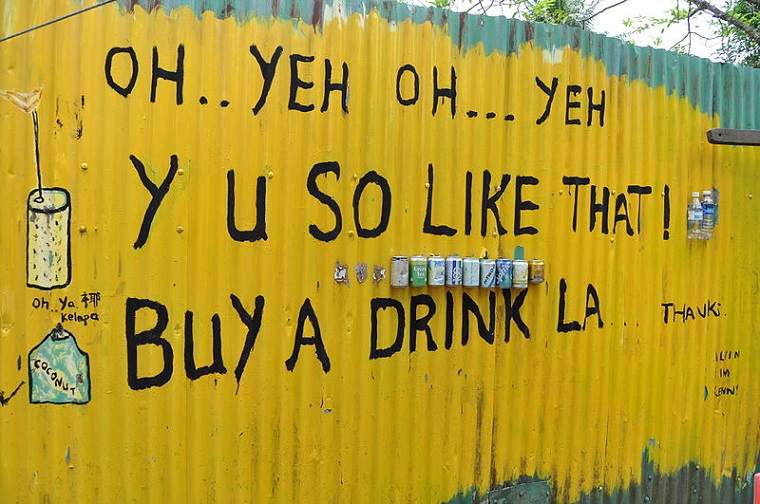Atlas Obscura, an American website that deals with the weird, kooky and unknown side of the world around us, recently turned their gaze to a very specific aspect of Singapore. Singlish.
The average Singaporean might find Singlish to be almost second, sometimes first, nature in their everyday interactions.
Little did we know that Singlish was actually the most difficult thing for anyone else in the world to pick up.
At least that's the hypothesis that the good folks at Atlas Obscura put forth. And reading through their article, you kind of see their point.
What is Singlish?
An average Singaporean: Singlish is Singlish lor.
Atlas Obscura: Singlish is not just one creole: it’s an amalgamation of many different Southeast Asian dialects and pidgins all rolled up into one.
When do you use Singlish?
An average Singaporean: When I want to lah.
Atlas Obscura: Though Singlish is prevalent all over Singapore, it operates on a spectrum dependent upon the circumstances, making it even harder to trace down. In formal settings, for example, Singlish tends to be toned down to its acrolectal form: Singlish words and grammatical structures are eliminated, and only the accent remains. In the day-to-day, however, a more colloquial form of Singlish is used.
What about the grammatical structure of Singlish?
An average Singaporean: Simi sai is Grandma tical structure? You scolding my Ah Mah ah?
Atlas Obsucra: The grammar of Singaporean English began to mirror the grammar of these languages. For example, a modern-day Singaporean could say “I go bus-stop wait for you,” to mean that he will wait for you at the bus stop. This phrase could be translated into either Malay or Chinese without having to change the grammatical structure of the sentence.
How important is Lah to the Singlish language
An average Singaporean: Huh? Ok lah, not that important lah, aiyah, I don't use it that much lah.
Atlas Obscura: Perhaps the most famous Singlish word is the ubiquitous “lah,” an example of the language’s more playful sensibilities.
It is essentially a filler word with no meaning. “Lah” can be placed anywhere in a sentence, but is often used as a form of audible punctuation at the end. Another popular exclamation is "wah lao," or the even more flamboyant "wah lao eh," used to express surprise or wonder.
How does intonation play a part in Singlish?
An average Singaporean: *gets up to grab a Kopi-c while cursing under his breath*
Atlas Obscura: One of the many barriers to picking up Singlish is its complicated intonation. English is a stress-timed language, which means that some syllables are longer, and others are shorter. Singlish, however, is syllable-timed, which means that each syllable is pronounced for an equal amount of time, making Singlish far more staccato in nature.
Singlish FTW
Sometimes we take for granted the ease in which Singlish comes to us, or are unfortunately forced to deviate from it due to perceptions of it being "low class".
But articles like Obscura's write up really places into context the depth and structure that Singlish has taken on over the years, and affirmed the notion that it should be something we take pride in, not shy away from.
The article ends off with this charming anecdote by a NS recruit who wasn't all too well versed in Singlish.
“I vividly remember an incident in Basic Military Training where my sergeant told my platoon, 'You all have 15 minutes. Go up and lepak [relax],’” says Pogaru. He spent the next 15 minutes trying to figure out what “lepak” meant and what exactly the sergeant wanted."
Singlish steady lah!
Come come don't shy read these related articles:
17 Singlish words that offer so much more than their English equivalents
16 terms that are gibberish in English but have rich meaning in Singlish
Top image from Wikimedia commons
If you like what you read, follow us on Facebook and Twitter to get the latest updates.
If you like what you read, follow us on Facebook, Instagram, Twitter and Telegram to get the latest updates.
